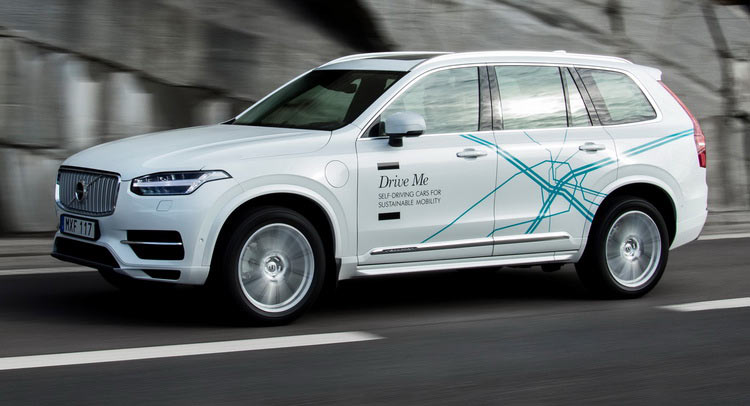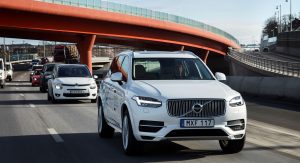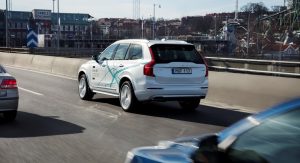Volvo’s UK-based autonomous driving trial will be called ‘Drive Me London’ and will be using real families driving real autonomous cars on public roads starting next year.
The Swedish automaker announced a similar program for China earlier this month, where it will look to reduce accidents, improve traffic flow and cut back on harmful emissions.
Company president & CEO Hakan Samuelsson will argue his case in London on May 3rd at a seminar named “A Future with Autonomous Driving Cars – Implications for the Insurance Industry”, sponsored by Volvo and Thatcham, the insurance industry’s research organization.
“There are multiple benefits to AD cars,” said Mr Samuelsson. “That is why governments globally need to put in place the legislation and infrastructure to allow AD cars onto the streets as soon as possible. The car industry cannot do it all by itself. We need governmental help.”
Drive Me London will begin early in 2017 but with a limited number of semi-autonomous vehicles. A larger expansion will come in 2018 which will include up to 100 autonomous cars, thus making it the largest and most extensive AD testing program in Britain.
According to independent research, autonomous driving has the potential to reduce car accidents by up to 30% in some cases, whereas up to 90% of all accidents are currently being caused by driver error or distraction, which should become non-factors in an era of self-driving cars.
“Vehicle manufacturers are predicting that highly autonomous vehicles, capable of allowing the driver to drop ‘out of the loop’ for certain sections of their journey, will be available from around 2021. Without doubt, crash frequency will also dramatically reduce. We’ve already seen this with the adoption of Autonomous Emergency Braking (AEB) on many new cars. Research in the US by NHTSA predicts that by 2035, as a result of autonomous and connected cars, crashes will be reduced by 80%. Additionally, if a crash unfortunately can’t be avoided, then the impact speed will also drop as a result of the system’s performance – reducing the severity of the crash,” argued Peter Shaw, chief executive at Thatcham Research.












